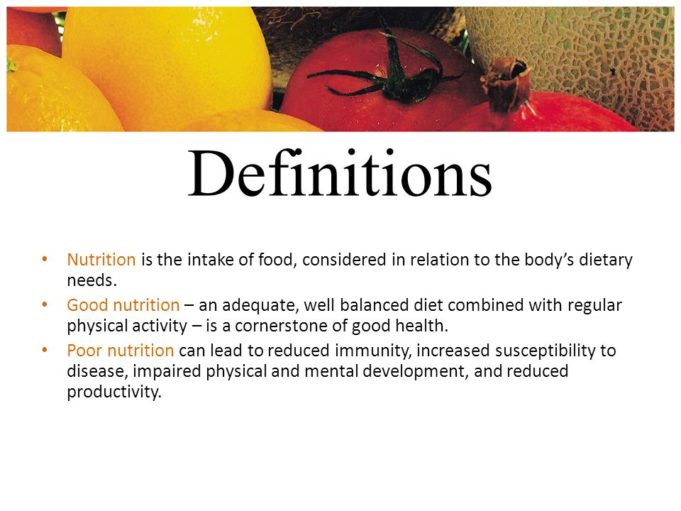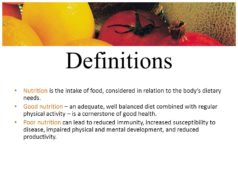Diet is an essential aspect of life for all living organisms, including humans. The food we eat provides our bodies with the nutrients, energy, and other essential substances needed to maintain life. In biology, the term “diet” refers to the specific types of food and nutrients that an organism consumes to sustain its growth, development, and overall health.
The biological definition of diet can vary depending on the species, as different organisms have different dietary requirements. For example, carnivores primarily consume animal-based foods, while herbivores consume plant-based foods. Omnivores, on the other hand, consume both animal and plant-based foods.
In humans, the biological definition of diet involves consuming a balanced mix of macronutrients (carbohydrates, proteins, and fats) and micronutrients (vitamins and minerals) to maintain optimal health. A balanced diet should also provide the body with enough energy to carry out its functions, fiber, and water for proper digestion and hydration.
ALSO READ:
Understanding the biological definition of diet is essential for maintaining good health and preventing diseases. Poor diet has been linked to many health problems, such as obesity, diabetes, heart disease, and certain types of cancer. Therefore, ensuring that our diet is healthy and well-balanced is essential and meets our nutritional needs.
In conclusion, the biological definition of diet is the specific types of food and nutrients that an organism consumes to maintain its growth, development, and overall health. Understanding this definition is essential for maintaining good health and preventing diseases in humans and other living organisms. A balanced and healthy diet is crucial for achieving optimal health and well-being.
The biological definition of diet is a complex topic that can be studied at different levels of the organization, from molecular and cellular mechanisms to whole organism physiology and ecology. In addition, the definition of diet can vary depending on the context, such as the developmental stage, environmental conditions, and evolutionary history of the organism.
For example, the diet of an embryo or a newborn animal is different from that of an adult, as it requires specific nutrients and growth factors for development. Similarly, the diet of an animal living in a particular environment may be influenced by the availability and quality of food resources, as well as by the interactions with other organisms and the physical conditions of the habitat.
ALSO READ:
Diet Soda, Sugary Soft Drinks and Diabetes
Regarding human nutrition, the biological definition of diet is an important area of research, as it can provide insights into the optimal intake of nutrients for preventing or managing various health conditions. For instance, recent studies have shown that a diet rich in fruits, vegetables, whole grains, and lean proteins can reduce the risk of chronic diseases, such as cardiovascular disease, type 2 diabetes, and some types of cancer.
Moreover, the biological definition of diet is closely linked to nutritional adequacy, which refers to the extent to which a diet provides the necessary nutrients for maintaining health and preventing deficiencies. The recommended dietary allowances (RDAs) and the dietary reference intakes (DRIs) are guidelines that aim to ensure the nutritional adequacy of a diet for different age groups and populations.
Overall, the biological definition of diet is a multifaceted and dynamic concept that has important implications for human and animal health and ecological and evolutionary processes.






















